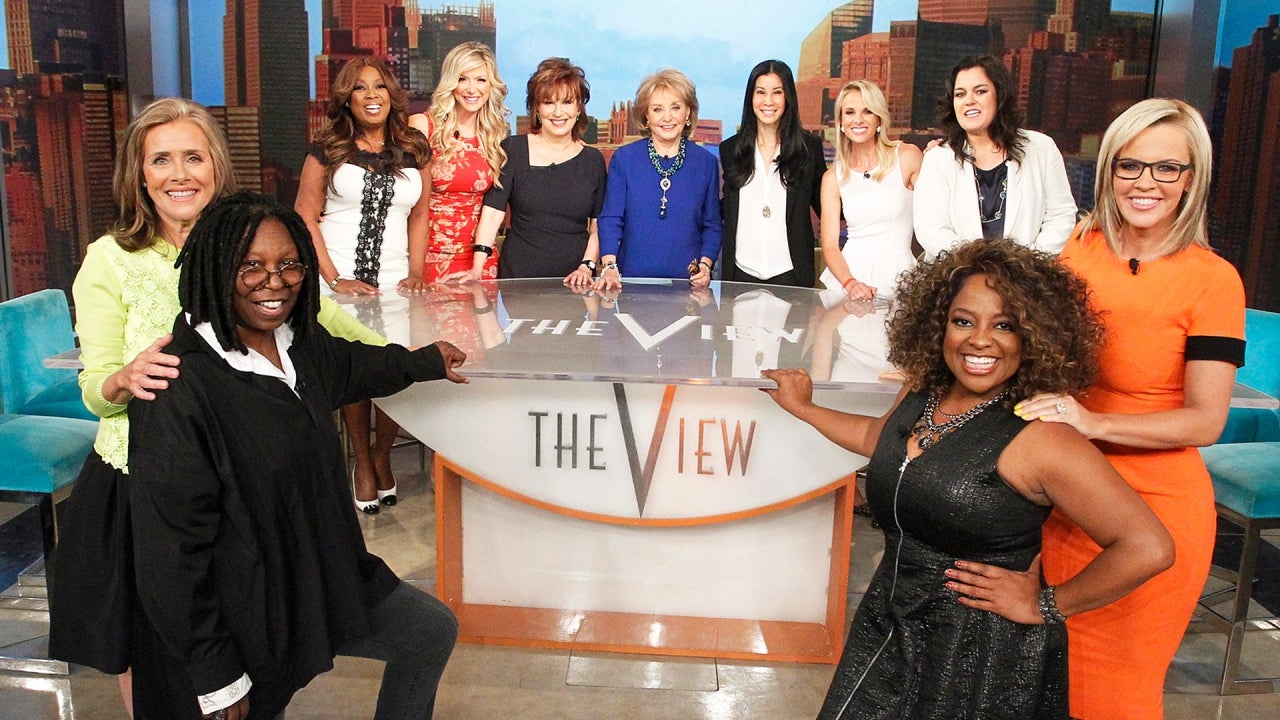Bill Maher has never been shy about lobbing verbal grenades at powerful figures in politics and media, and this week, the HBO host turned his sights on one of daytime television’s most talked-about programs: The View.
During a conversation on his Club Random podcast with actress and fellow talk show host Drew Barrymore, Maher offered candid — and, for some, cutting — commentary about the ABC panel show and its high-profile co-hosts. While stressing that he personally likes the women on the show, he questioned whether the public persona they project is doing any favors for the causes they champion.
“And I like everyone,” Maher told Barrymore, “but I don’t know if they’re really at this moment the best advertisement for women.”

A Show That’s “A Lot”
The comments came after Barrymore invited Maher to appear on The Drew Barrymore Show. That prompted Maher to reflect on his relationships with several View panelists, including Joy Behar, and his candid impressions of their program.
“I’m friendly with some of the ladies on The View and I love them,” Maher said, “but, like, that show’s a lot.”
Barrymore noted that Behar had recently appeared on her own show, drawing warm praise from Maher — “I love Joy” — but he quickly pivoted to a more critical observation about the panel’s political messaging.
“They say some things that are just like, not helpful, say to elections,” he remarked, suggesting that the show’s approach can undermine the political outcomes its hosts presumably want to see.
Past Clashes on the Panel
Maher’s skepticism about The View isn’t just from afar. In May 2024, he appeared on the program and found himself in a tense on-air exchange with co-host Sunny Hostin over the war between Israel and Hamas.
Hostin accused Israel of killing innocent Palestinian civilians and children, a point Maher pushed back on. While expressing his concern for innocent lives, he argued that Israel has the right to defend itself and placed responsibility for ending civilian casualties squarely on Hamas.

“That’s what happens in a war. Here’s a way to stop that: stop attacking Israel,” Maher told Hostin during the live broadcast.
The moment illustrated the clash of styles between Maher’s often combative, debate-ready approach and The View’s multi-voice panel, which thrives on passionate, sometimes chaotic exchanges.
Criticism of Whoopi Goldberg’s Comments
Maher’s critique of the show hasn’t been limited to electoral strategy or geopolitical disagreements. In July 2025, he publicly took issue with remarks by co-host Whoopi Goldberg, who had compared the oppression of Black people in the United States to the oppression of women in Iran.
Speaking to progressive commentator Brian Tyler Cohen on Club Random, Maher didn’t mince words.
“Love her, but when she said a couple weeks ago that being Black was the same as being a woman in Iran, it’s like, yeah, in 1920, but not today,” he said, calling it an example of overreach from what he termed the “stupid woke” faction of the left.

The Maher Formula: Humor Meets Critique
Maher’s comments fit a familiar pattern for the Real Time host, who has built his career on mixing sharp-edged humor with political analysis that often targets his own ideological allies. While he identifies as a liberal, Maher has repeatedly criticized progressive excesses, warning that they can alienate voters and hand political wins to the other side.
In this case, his barbs at The View underscore his belief that the show’s tone and talking points sometimes play into the kind of “tribal warfare” that turns off moderates and swing voters. His quip — “Less The View, more ‘The Queue’… of talking points” — was a jab at what he sees as the program’s tendency toward predictable, partisan scripting rather than authentic dialogue.
A Genre Under Scrutiny
Maher’s latest remarks also feed into a broader conversation about the state of daytime talk shows. While The View remains a ratings powerhouse, it’s also a lightning rod for criticism, with detractors on both the left and right accusing it of devolving into an echo chamber.
Supporters argue that the show’s mix of personalities and heated debates reflects real-world conversations — messy, passionate, and often unresolved. Critics counter that it’s become more about scoring partisan points than fostering genuine understanding.
By questioning whether the hosts are “the best advertisement for women,” Maher waded into sensitive territory. His point wasn’t that women shouldn’t have strong opinions on television — he’s shared the stage with outspoken women for decades — but that the way those opinions are packaged on The View might not be serving the broader political and cultural goals the hosts embrace.
Will The View Respond?
It’s unclear whether the co-hosts of The View will respond directly to Maher’s latest critique. The show has a long history of addressing criticism head-on, often turning it into a segment for discussion or debate. Given Maher’s history with the panel — and his ongoing friendship with some of its members — it wouldn’t be surprising if the remarks came up in a future episode.
For Maher, the willingness to deliver uncomfortable truths, even to friends and ideological allies, is part of the job. It’s the same approach that’s kept him in the cultural conversation for decades — and the same one that ensures his comments will spark both agreement and outrage.
Whether you see his take as fair critique or unnecessary provocation, Maher’s comments have once again spotlighted the tension between political advocacy and mass-media presentation. And in the ever-polarized world of daytime TV, that’s a debate unlikely to end anytime soon.




